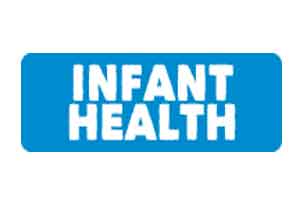- Home
- Editorial
- News
- Practice Guidelines
- Anesthesiology Guidelines
- Cancer Guidelines
- Cardiac Sciences Guidelines
- Critical Care Guidelines
- Dentistry Guidelines
- Dermatology Guidelines
- Diabetes and Endo Guidelines
- Diagnostics Guidelines
- ENT Guidelines
- Featured Practice Guidelines
- Gastroenterology Guidelines
- Geriatrics Guidelines
- Medicine Guidelines
- Nephrology Guidelines
- Neurosciences Guidelines
- Obs and Gynae Guidelines
- Ophthalmology Guidelines
- Orthopaedics Guidelines
- Paediatrics Guidelines
- Psychiatry Guidelines
- Pulmonology Guidelines
- Radiology Guidelines
- Surgery Guidelines
- Urology Guidelines
Paid maternity leave can lead to better infant health

Toronto : Longer and paid maternity leave may reduce a new mother's stress level leading to better infant health, scientists including an India-origin researcher have found.
For each additional month of paid maternity leave offered in low and middle-income countries, infant mortality reduced by 13 percent.
"A significant number of countries where the vast majority of maternal and child deaths occur provide less than 12 weeks of paid leave to new mothers," said lead author Arijit Nandi from Mcgill University in Canada.
"Our findings suggest that paid maternity leave policies are a potential instrument for reducing preventable child deaths, even in countries where women are less likely to be working in the formal economy," Nandi said in a paper published in the journal PLoS Medicine.
The finding marks the first time that research has examined the impact of paid maternity leave on infant mortality in low and middle-income countries.
Previous work has shown that paid time off is consistently associated with lower mortality of babies under one year old in high-income countries.
Researchers analysed approximately 300,000 children born over a period of eight years in 20 low and middle-income countries across Africa, Asia and Latin America.
They combined the data with information on government maternity leave policies in those countries.
The researchers found that adding just one month to the length of paid leave prevents about eight infant deaths per 1,000 live births, equivalent to 13 percent reduction in mortality.
The most significant life-saving effect of extending paid maternity leave occurs during the post-neonatal period, when babies range in age from about one month to one year.
"A woman who takes time off from work at that point may be more likely to continue breastfeeding and to ensure that her baby receives vaccinations both of which are important factors in infant health," the authors noted.

Disclaimer: This site is primarily intended for healthcare professionals. Any content/information on this website does not replace the advice of medical and/or health professionals and should not be construed as medical/diagnostic advice/endorsement or prescription. Use of this site is subject to our terms of use, privacy policy, advertisement policy. © 2020 Minerva Medical Treatment Pvt Ltd